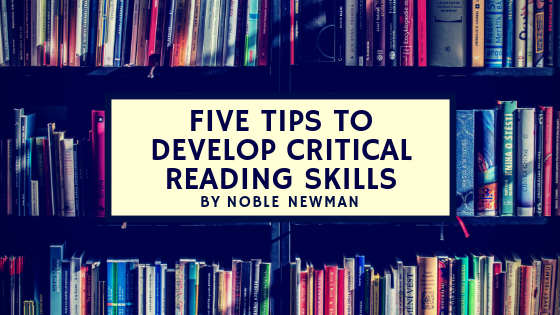Anyone who has ever read a text they were not completely interested in has had the experience of reading the same passage over and over without it fully sinking in. Critical reading is the experience of fully engaging with a text, beyond just reading and understanding the meaning. When doing an academic reading, it is paramount to be able to understand the meaning of the book, be able to compare and contrast to other texts, and fully interpret what it means as a whole. Here are some tips to develop your critical reading skills.
Be selective and learn to skim
Critical reading is time-consuming, so readers will need to pick the text with the most relevance and that offers a unique perspective or topic to other related documents. Choose carefully, and then quickly skim the book for main ideas and key concepts. Once you have a basic understanding of what the text is about and which sections will hold the most importance, slow down and read those passages carefully.
Identify critical questions
The reader should think about why they are reading these particular texts and what they hope to gain from them before starting. By writing these questions down, the student will know what to look for when reading selected essential passages.
Take Notes
Taking notes is not only about being able to look over impressions later, but it also helps the student absorb the content by slowing down and mulling over what they have just read. Every couple of paragraphs readers should jot down key concepts and ideas that relate to the critical questions written down earlier.
Re-read and review
To fully understand an academic text, the reader will need to re-read crucial passages several times. Students should discuss their notes, re-read and identify any critical concepts missed, and review all the while again keeping in mind the vital questions.
Author biases
Every author writes from their unique perspective. Consider who the author is and why they wrote this particular text. Understanding the purpose will lead to greater understanding overall. Keep in mind that biases are not necessarily good or bad, but they should be considered before trusting the content implicitly.
Developing critical reading skills will help student’s understand material better and synthesize it into poignant and creative new ideas. These tips will open new worlds of information for any researcher wanting to read deeper into text and go beyond the face value of the words.

